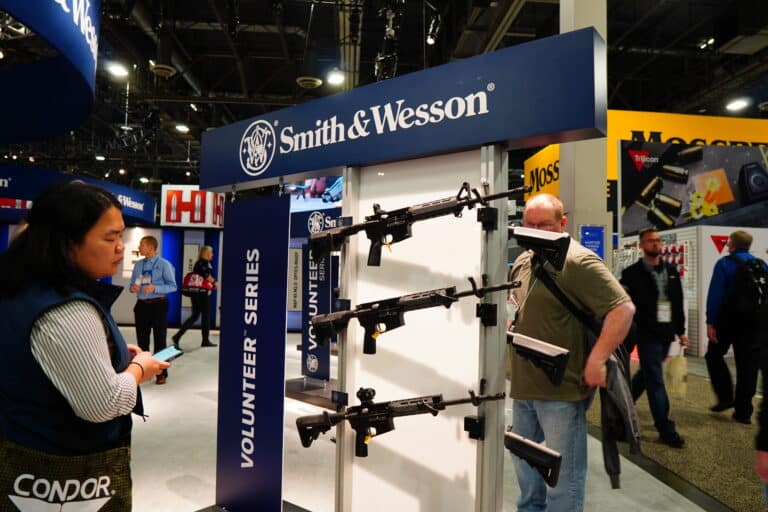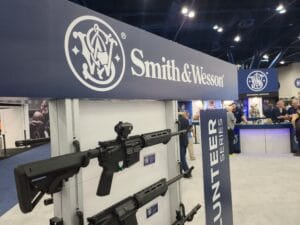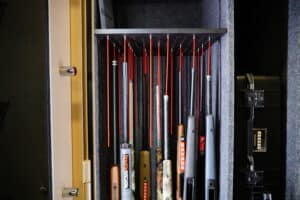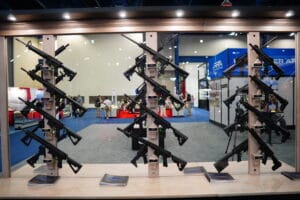A state judge has found Illinois’ new ban on AR-15s and similar firearms violates residents’ constitutional rights.
Judge Joshua Morrison granted a temporary restraining order to the plaintiffs in Accuracy Firearms v. Pritzker on Friday. He found the state’s ban on so-called assault weapons, including popular guns like the AR-15 and AK-47, violates several sections of the state constitution and also contradicts the latest gun-rights ruling from the Supreme Court of the United States (SCOTUS).
“The Court finds the Plaintiffs have shown a likelihood of success in relation to the equal protection clause of the Illinois Constitution and that the Defendant’s use of criteria, especially those that is not evenly applied violates the face of the Supreme Court’s findings in New York State Rifle Association, Inc v. Bruen [SIC],” Judge Morrison wrote in his decision.
He ruled the law represents an ongoing danger to the Illinois residents who filed the case.
“Plaintiffs are being immediately and irreparably harmed each day in which their fundamental right to bear arms is being denied and that this harm is continuing in nature,” he wrote.
While the ruling is limited to the 866 plaintiffs who filed the case, it is a bad start for one of the first new statewide assault weapons bans to pass in over two decades. It deals an early blow to the hopes of the ban’s supporters who are running up against the most hostile legal environment for the laws since they were first created in the late 1980s. And a pending federal case against the law could bring further trouble.
That’s because the Bruen decision casts new doubt on the legality of the modern bans, which don’t have a historical analogue from the founding era as required under the test for modern gun laws established in the case. Additionally, several other assault weapons bans have already been blocked by judges in the wake of Bruen, including an Obama appointee and a Biden appointee. And the Supreme Court has vacated a lower court ruling in Bianchi v. Frosh upholding Maryland’s ban with instructions to retry the case under the new test.
The ruling and associated legal trouble are just one of several setbacks for backers of the ban who were already contending with pledges for mass non-compliance from gun-rights activists and local sheriffs alike. Dozens of local officials have pledged not to enforce the ban’s registration requirements against residents that purchased their now-banned guns and ammunition magazines. Governor J.B. Pritzker (D.) has vowed to punish sheriffs who decline to enforce the law he backed and use state resources to ensure residents don’t evade the ban, but he has limited options for following through on those threats.
Judge Morrison ruled passage of the ban violated multiple procedural requirements under the Illinois constitution, including a rule requiring the bill to be read on three different days before passage. But he also found it violated the state constitution’s due process and equal protection clauses. He argued the way the legislature exempted certain groups from the effects of the ban was inconsistent and illogical. And he found banning low-recoil firearms that are often used by disabled people for self-defense, such as the AR-15, represented a violation of that protected group’s rights.
“The Court cannot find it logical that a warden of a prison (included in the exempted category) is necessarily better trained or more experienced in the handling Of weapons than retired military personnel (not included in the exempted category),” Judge Morrison wrote. “It also does not follow that a member of the National Guard would be Ies well or experienced in handling a firearm when they are not on active duty compared to when they are. Further, other rational and logical exemptions have been excluded, such as a person in a wheelchair who cannot use a shotgun due to concerns, thus discriminating against a class.”
He said the state was unable to justify the need for the ban or the exceptions to it.
“Due to the lack of compliance of the Defendants, the Court is left with nothing to conclude what might be the compelling public purpose of this legislation,” he wrote. “In oral arguments, the Defendants suggested that the goal of the legislation was to reduce firearms deaths and mass shooting casualties; however, they offered no evidence that the individuals in their newly created class on training and experience were any more or less likely to commit these crimes, nor did they provide evidence that the individuals excluded from this class were more likely to commit crimes.”
Governor Pritzker decried the ruling. He said it was “not surprising” but “disappointing.”
“[I]t is the initial result we’ve seen in many cases brought by plaintiffs whose goal is to advance ideology over public safety,” he said in a statement. “We are well aware that this is only the first step in defending this important legislation.”
Pritker said he remains “confident that the courts will uphold the constitutionality of Illinois’ law,” which he said “takes weapons of war and mass destruction off the street while allowing law-abiding gun owners to retain their collections.”
Judge Morrison said the ban may have further constitutional defects beyond the ones he ruled on in his order.
“[T]the U.S. Supreme Court recently found, in New York State Rifle Association, Inc. v. Bruen, that the State of New York violated the Constitution when requiring ‘proper cause’ in order to obtain a license to carry a gun,” he wrote. “As requirements for possession of a weapon in the home is generally and necessarily less restrictive than carrying a weapon outside of the home; it follows that ‘proper cause’ would be unallowable for possession as well. As training and experience are being used by the to justify who can and cannot possess these it is an example of a use of ‘proper cause’ and is therefore Unconstitutional.”
He scheduled a preliminary injuction hearing for February 1st, 2023.






